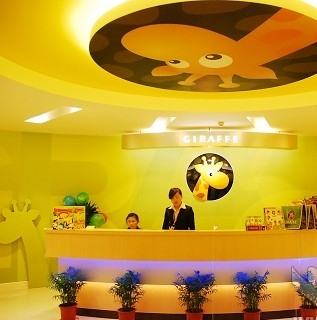
I sold a business called Giraffe, the popular, family-friendly restaurant chain, last week. Letting go is often a bittersweet experience and in this case especially so, since I had been chairman and co-owner for nine years and seen the company expand 10-fold during my involvement.
最近,我賣(mài)掉了一家公司——頗受歡迎、適合家庭就餐的長(zhǎng)頸鹿(Giraffe)連鎖餐廳。放手經(jīng)常是一件苦樂(lè)參半的事情,賣(mài)掉長(zhǎng)頸鹿餐廳尤其如此,因?yàn)槲以?jīng)擔(dān)任該公司董事長(zhǎng)兼共同所有人9年時(shí)間。在我任職期間,我親眼目睹公司的規(guī)模擴(kuò)大了10倍。
Moreover, it was a fabulous journey. We created hundreds of jobs, paid plenty in tax, enjoyed the ride and gave untold thousands of diners a lot of pleasure.
更重要的是,這是一段輝煌的旅程。我們創(chuàng)造了數(shù)百個(gè)就業(yè)崗位、上繳了大量稅款、享受了這段旅程,并給無(wú)數(shù)食客帶來(lái)了很多快樂(lè)。
It is undeniably always wonderful to get a big cheque, and according to certain criteria that is the point of it all – to bank a profit.
不可否認(rèn),獲得一張大額支票永遠(yuǎn)是一件美好的事情,根據(jù)某些標(biāo)準(zhǔn),賺錢(qián)就是一切。
But as one serial entrepreneur once told me, after the first time you receive a decent slug of money, the thrill fades. Indeed, many business owners suffer seller’s remorse. I certainly have.
但正如一位連續(xù)創(chuàng)業(yè)的企業(yè)家曾告訴我的那樣,在你第一次收到數(shù)目可觀的金錢(qián)之后,那種興奮感就消退了。實(shí)際上,很多企業(yè)主在出售企業(yè)后會(huì)感到后悔。我當(dāng)然也有這種感覺(jué)。
After I sold my PizzaExpress shares and stepped down from its board to take on other restaurant projects, I felt a kind of bereavement.
出售自己手中所持PizzaExpress的股份后,我從該公司董事會(huì)退下來(lái),轉(zhuǎn)而投入其他餐飲項(xiàng)目。我當(dāng)時(shí)有一種喪親之痛。
Still today I have mixed views on the rare occasions when I eat in one: a touch of pride combined with a little regret that I am no longer part of a classic institution – and many fond memories of what was, for me at any rate, a life-changing venture.
直到現(xiàn)在,當(dāng)我偶爾到賣(mài)掉的一家餐館就餐時(shí),我的心里五味雜陳:一種驕傲感油然而生,同時(shí)還伴有一絲遺憾,因?yàn)槲也辉偈沁@家經(jīng)典機(jī)構(gòu)的一部分了;不管怎樣,對(duì)我而言,跟它在一起的很多美好回憶已改變了我的生活。
After all, if you scratch the surface, most entrepreneurs are no good at spending money even when they make piles of it. More often than not, they will admit that the defining moment of their career was not cashing out but actually building a successful enterprise – assembling a winning team, serving customers well, besting the competition and gaining the admiration of their peers. These are the activities of a founder.
畢竟,如果你透過(guò)表面,多數(shù)企業(yè)家在花錢(qián)方面毫不擅長(zhǎng),即便在他們賺得盆滿缽滿之際。他們通常會(huì)承認(rèn),他們事業(yè)的決定性時(shí)刻不是賺錢(qián),實(shí)際上是創(chuàng)建一家成功企業(yè)——組建一個(gè)決勝團(tuán)隊(duì),為客戶提供完善服務(wù),贏得競(jìng)爭(zhēng)以及獲得同行的贊許。這些都是企業(yè)創(chuàng)始人所做的事。
By contrast, leaving is a farewell, a reminder than nothing lasts for ever, that with each departure a piece of us is gone for good.
相比之下,離開(kāi)是一種告別,它提醒我們天下沒(méi)有不散的筵席,每一次離開(kāi)就像是我們身體的某一部分永遠(yuǎn)地消失了。
The other emotion I feel when selling a great business is fear. I am always afraid that I will never find another asset to replace it, another interesting undertaking that will engage me.
當(dāng)賣(mài)掉一家優(yōu)秀企業(yè)時(shí),我的另一種心情是擔(dān)憂。我總害怕自己將永遠(yuǎn)找不到另一項(xiàng)資產(chǎn)來(lái)代替它,再也找不到另一個(gè)讓我參與其中的有趣項(xiàng)目了。












